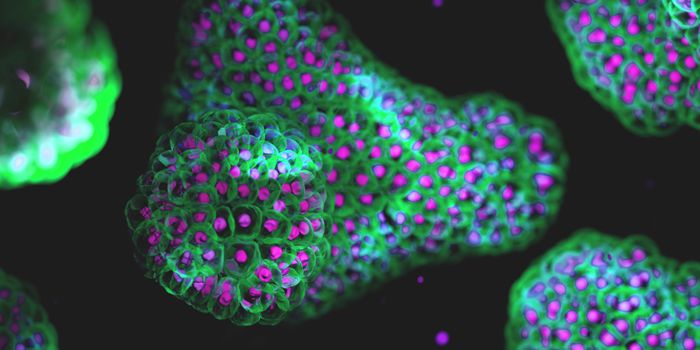Glioblastoma Treatment Using Schizophrenic Drug Plus Radiation
A therapeutic used for the treatment of schizophrenia could be a gateway for targeting glioblastoma, one of the deadliest brain tumors. Findings were published in the Proceedings of the National Academy of Sciences (PNAS) and discusses how the schizophrenic drug, trifluoperazine, could be used in combination with radiation to eradicate glioblastoma tumors.
Learn more about glioblastoma:
"While radiotherapy is one of the few treatments that prolong survival in glioblastoma patients, radiation alone does very little in treating the disease in our models because we are dealing with highly aggressive tumors," said the study's senior author, Dr. Frank Pajonk, a professor of radiation oncology at the David Geffen School of Medicine at UCLA and a member of the Jonsson Cancer Center. "The drug trifluoperazine by itself does not do much either, but we found when you combine them, they become highly efficient. Importantly, the drug does not sensitize cells to radiation but rather prevents the occurrence of resistant glioma stem cells."
The use of radiative therapy has been a critical component of cancer treatment. However, tumor cells that are known to develop resistance to drugs can also develop resistance to radiation. This resistance is believed to be the result of “phenotype conversion”—where healthy cells become tumor cells and defeating the purpose.
"Many preclinical glioblastoma studies report fairly small increases in overall survival in mice, and that rarely translates into benefits for patients," said Pajonk, who is also a member of the Eli and Edythe Broad Center of Regenerative Medicine and Stem Cell Research at UCLA. "But here we see pretty drastic effects in improved overall survival, and I find that very encouraging. It gives us hope that this is all going to translate into a benefit for people."
Source: Science Daily









